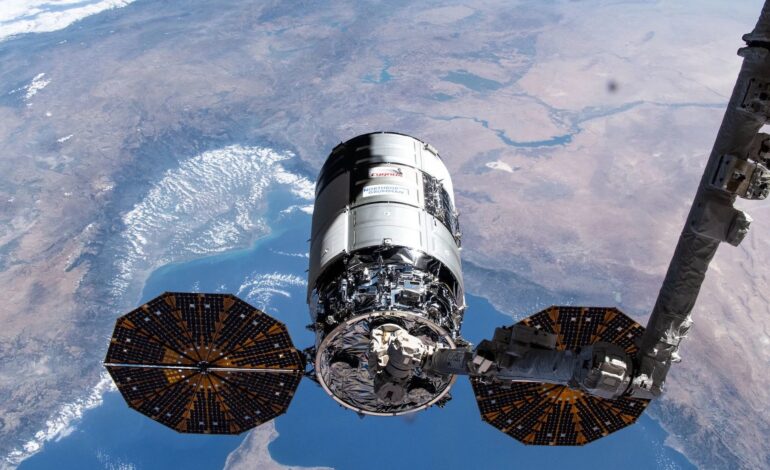Engine Issue Delays Cygnus XL Cargo Ship’s Arrival at ISS

Northrop Grumman’s upgraded Cygnus XL cargo ship is facing delays on its journey to the International Space Station (ISS) due to an engine shutdown. The spacecraft, which launched on March 12, 2023, at 18:11 ET aboard a SpaceX Falcon 9 rocket from Cape Canaveral Space Force Station in Florida, was carrying approximately 11,000 pounds of supplies, science investigations, and equipment for the ISS crew.
Originally scheduled to arrive at the ISS on March 15, 2023, the Cygnus XL experienced a malfunction in its main engine during two critical burns aimed at raising the spacecraft’s orbit for rendezvous with the station. According to NASA, flight controllers are currently assessing an alternative maneuvering plan to facilitate the mission.
Engine Shutdown Interrupts Mission
The Cygnus XL’s engine issue arose when it “stopped earlier than planned” during the orbital adjustment process. While the spacecraft’s other systems are operating normally, this engine failure has complicated the mission’s intricate rendezvous procedures. Unlike SpaceX’s Dragon cargo ships, which can autonomously dock with the ISS, Cygnus relies on the Canadian-built robotic arm, known as Canadarm2, to capture and secure it.
Once the spacecraft is captured, Canadarm2 will install it on the Earth-facing port of the Unity module, where it is expected to remain attached until March 2026. NASA and Northrop Grumman are currently working together to establish a new arrival date and time while addressing the engine issue.
Significance of the Cygnus XL Mission
This mission marks the first flight of the larger version of the Cygnus spacecraft, featuring an extended, pressurized cargo module that increases its payload capacity by 33% compared to previous models. With this enhanced design, Cygnus XL is set to deliver the heaviest load of supplies ever transported to the ISS. This delivery is part of Northrop Grumman’s 23rd cargo shipment under its multi-billion dollar commercial resupply contract with NASA.
Last year, another Cygnus cargo ship encountered difficulties during its approach to the ISS. That mission was similarly affected by an engine issue during its initial burns. NASA reported that the targeted altitude burn was aborted shortly after ignition due to low pressure conditions. Ultimately, the issue was resolved, and the Cygnus spacecraft successfully reached the station on schedule.
As teams continue to address the current engine challenges, both NASA and Northrop Grumman remain committed to ensuring the safe delivery of vital supplies to the ISS. The outcome of this mission will be closely monitored as it plays a crucial role in supporting ongoing research and operations in low Earth orbit.






